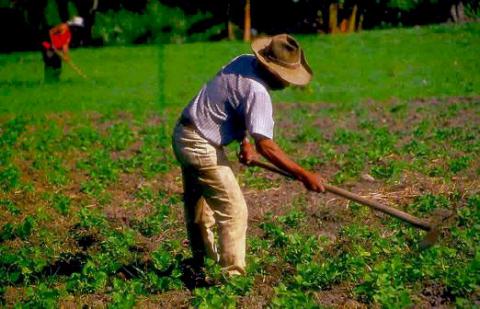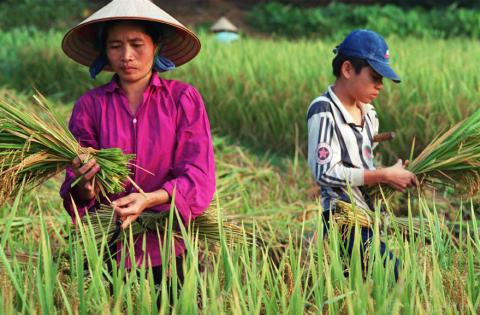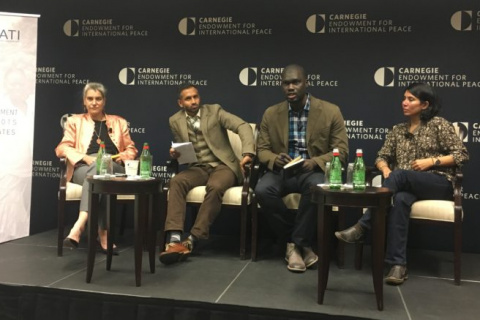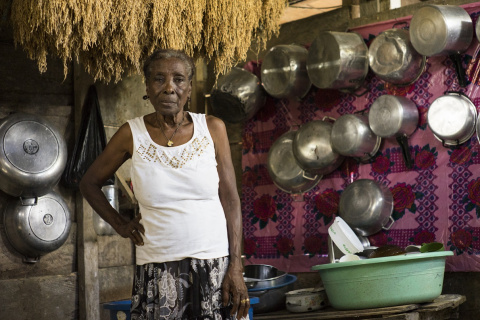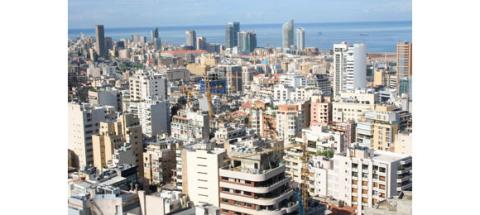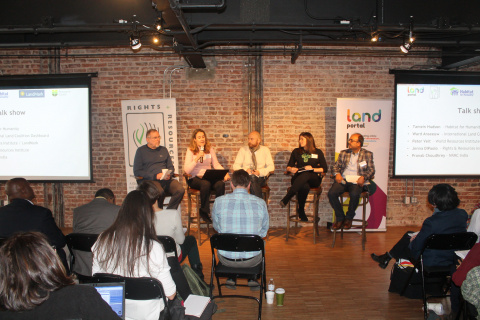Discover hidden stories and unheard voices on land governance issues from around the world. This is where the Land Portal community shares activities, experiences, challenges and successes.
 Follow our
Follow our
Sustainable Development Goals
Blog Series!
Interested in land corruption?
Follow our Land & Corruption Blog Series
for in-depth perspectives from the experts.
Issues
Geographical focus
Por : Wilmar Harley Castillo Amorocho (Rebelión)
En Colombia ha sido histórico que el campesinado se movilice por la tener la tierra y trabajarla con fines populares. Agricultura orgánica, producción de alimentos, comercialización en redes locales, junto al despliegue de dinámicas sociales y políticas alrededor de la tierra, cuyo proceso crea otro tipo de relacionamiento entre las personas, con la naturaleza y con el resto de comunidades. Es decir, se construye territorio.
The failure to secure the property rights of rural communities shows a clear policy gap between citizens and rights to land as per the Constitution and the attitude and practices of the state, traditional leaders, white farmers and mining companies in relation to such rights.
Absent from the discourse spurred by the motion passed in the National Assembly on 27 February is what could be achieved in the interim for land reform programme using existing legislation while the country awaits a verdict on the constitutional amendment to determine whether is possible to expropriate land w
The Second Regional Land Forum kicked off in Bangkok, Thailand in the early morning of May 28th and the opening session was certainly one to remember! Live drones, talk of big data and using NASA related technology to propel land rights forward, were but a few of the impressive topics on the table. Participants gathered to hear a variety of ‘flash talks’, quick yet effective pitches about notable initiatives relating to data, technology and land rights.
Access to justice is a key governance concern in developed and developing countries alike. Community legal workers aim to help poor or comparatively powerless people defend themselves against land grabs, obtain public services, and challenge corruption. Can this bottom-up approach counter powerful interests seeking to entrench their control? Can legal empowerment help respond to rising authoritarianism and repression of civil society?
Por: Taran Volckhausen
On Wednesday, 6 September 2017, Barbuda, the less known sister isle of the popular resort island of Antigua, bore the full brunt of Hurricane Irma as it struck the Leeward Islands of the Eastern Caribbean. The island suffered near total destruction: 95% of the island’s buildings were damaged, 60% of the population were rendered homeless, and a 2-year-old child was tragically killed. Antigua, on the older hand, was relatively untouched.
Imagine you're a local sustainability officer developing an initiative to reduce emissions. But you don't know how many emissions the city produces, or where they're coming from. You don't know who the city's biggest energy users are, how many cars are on the road, or the amount of waste produced every year. And even if you can set goals for reducing emissions, you have no way of measuring progress against them.
New technology has unleashed a wave of opportunities to secure formal land rights for hundreds of millions of people, but it is not a solve-all solution in countries with weak institutions, said a senior World Bank economist.
Satellite imagery, drones, cloud computing and blockchain are among technologies with the potential to help many of the world’s more than 1 billion people estimated to lack secure property rights, said the World Bank’s Klaus Deininger.
First global benchmark for measuring and reporting land information aims to improve tenure security and enable fair compensation
The potential for conflicts related to large-scale land acquisitions could be cut down significantly if seven key pieces of information are included in every property transaction, land professionals say.
Desde la invasión de las Américas –lo que es conocido como “descubrimiento” – por los colonizadores europeos, el conflicto por la tierra siempre fue una constante en la historia de estos territorios. Indígenas, pueblos originarios, campesinos y comunidades quilombolas[1], entre otros actores que luchan por el derecho a la tierra, son el cuerpo resistente al proceso de colonización que nunca terminó.
After years of efforts, land rights are finally getting global attention. With several land-related indicators included in the Sustainable Development Goals, the land sector now has the unique opportunity to create an unprecedented momentum around land tenure issues and bring it to a higher level on the development agenda. Our goal is, of course, to contribute to the success of the SDGs, but also to be part of sustainable development in its real and practical sense!
Much of the world’s rural landscapes are technically managed by national governments with limited recognition of, or support for, the rights and management responsibilities of the rural poor who live in these areas. In an era of large-scale land acquisitions for global commodity production, this has led, in some cases, to governments allocating vast tracts of land and resources to companies with limited or no consultation of the people affected.

